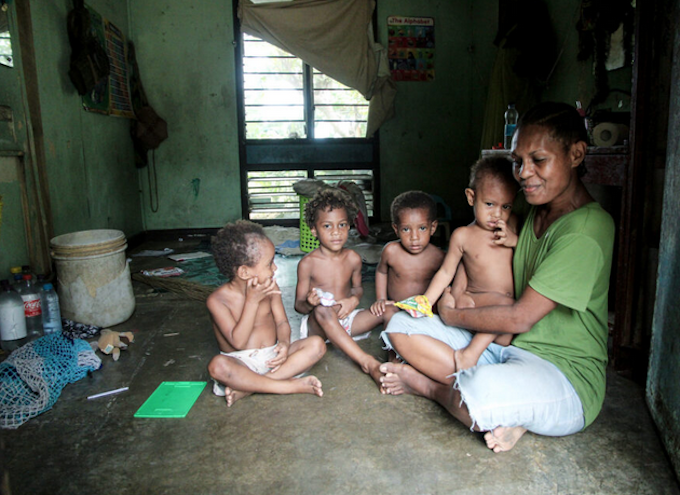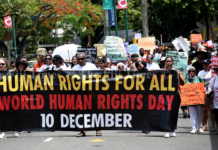
By Scott Waide in Lae, Papua New Guinea
Ten days into 2024, Port Moresby descended into chaos as opportunists looted and burned shops in Waigani, Gerehu and other suburbs.
That morning, police, military and correctional service personnel gathered at the Unagi Oval in protest over deductions made to their pays that fortnight. Unsatisfied with the explanations, they withdrew their services and converged on Parliament to seek answers.
It took just a few hours for the delicate balance between order and chaos to be tipped to one side.
In the absence of police, people took to the streets. They looted shops nearest to them and forced the closure of the entire city. Several people died during the looting.
The politicians — the lawmakers — were left powerless as the enforcers of the law became spectators allowing the mayhem to worsen.
While many saw the so-called Black Wednesday, 10 January, 202, as a one off incident caused by “disgruntled” members of the services, the warning signs had been flashing for many years and had been largely ignored.
Two weeks back, I asked a constable attached with one of Lae’s Sector Response Units (SRU) about his take home pay. It is an uncomfortable discussion to have.
Living conditions
But it is necessary to understand the pay and living conditions of the men and women who maintain that delicate balance in Papua New Guinea.
He said his take home pay was about K900 (NZ$385). When the so-called “glitch” happened in the Finance Department, many RPNGC members like him had up to one third of their pay deducted. That’s a sizable chunk for a small family.
Policemen and women won’t talk about it publicly.
They also won’t talk about the difficulties and frustrations they face at home when there’s a pay deduction like the one in January.
Black Wednesday showed the culmination of frustrations over years of unpaid allowances, poor living conditions and successive governments that have ignored basic needs in favour of grand announcements and flashy deployments that prop up political egos.
Why am I raising this? What does Black Wednesday have to do with anything?
That incident showed just how important the lowest paid frontline cops are in the socioeconomic ecosystem that we live in. The politicians, make the laws, they “maintain law and order” and we’re supposed to obey.
Oath of service
Police, military and correctional service personnel, entrust their welfare to the state when they sign an oath of service. This means the government is obliged to care for them, while they SERVE the state and the people of Papua New Guinea.
But for decades, successive governments seem to have forgotten their obligations.
Out of sight. Out of mind.
Politicians have opted for short term adhoc welfare “pills” like paying for deployment allowances while ignoring the long term needs like housing and general living conditions.
Let me bring your attention now to 17 police families living in dormitories at at a condemned training center owned by the Department of Agriculture and Livestock at 3-mile in Lae.
The policemen who live with their families didn’t want to speak on record. But their wives spoke for their families. Many have little option but to remain there. Rent is expensive. Living in settlements puts their policemen husbands at risk.
Here’s the question
There’s no running water or electricity.
Here’s the question: How does the government expect a constable to function when his or her family is unsafe and unwell?
The Acting ACP for the Northern Division, Chris Kunyanban has seen it play out time and time again. He said, as a commander, it is difficult to get a cop who is struggling to fix his rundown police housing to work 12 hour shifts while there’s a leaking roof and a sick child.
It’s that simple.
The government says it is committed to increasing police numbers. Recruitments are ongoing. But there is still a dire shortage of housing for police.
Republished from Lekmak with permission.













































